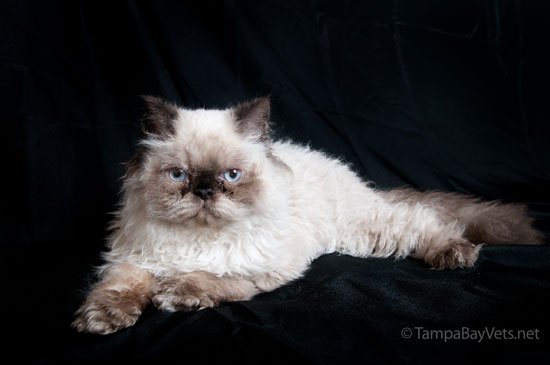Top 5 Common Household Items that Pose a Poisoning Risk to Cats

The CATalyst Council, a national initiative comprised of animal health and welfare organizations working on behalf of cats, is reminding cat owners of the following common household items that pose a poisoning risk to their pets.
1. Household plants. Cats are frequently poisoned by nibbling on plants. While most of the time an upset stomach is the only result, there are plants that can kill your cat if ingested. Lilies– especially Easter lilies– are the most common lethal plant. Should you suspect that your cat has eaten a plant, bring the plant (or part of it) to the veterinary clinic so the source of the poisoning can be identified.
2. Human food. Giving your cat table scraps is never a good idea. While most table scraps only lead to stomach upset, there are human foods that pose a risk of making your cat seriously ill, like onion, garlic, chives, chocolate and caffeine.
3. Medications. The ingestion of medications, both human and animal, is one of the most common causes of poisoning for cats. Be sure to keep all medications (even the medications prescribed for your cat) in a safe place that your cat can’t reach.
4. Mouse or rat poison. Cats usually don’t ingest these poisons directly; rather, they eat it when they catch a mouse or rat that died or was made ill by the poison.
5. Flea collars and medications. While it’s important to protect your cat from fleas and ticks, it’s just as important to ensure that you are doing so in a safe manner. Cats can be poisoned by flea collars if they ingest them and sometimes even just wearing them. If you use one, make sure your own veterinarian has approved it and that it is properly secured. If you use a topical flea and tick preventive, be sure to apply it properly as recommended by your veterinarian, and since even commonly used supplements and medications can be poisonous to cats, never give your cat any medications unless your veterinarian has approved them.
Make sure your pet health insurance policy covers poisonings for your cat, and if you are ever concerned that your cat has ingested something it should not have, call your veterinarian or the ASPCA’s 24-hour Emergency Poison Hotline at 888-426-4435, and make sure you have those numbers handy in case of emergency.
Courtesy of catalystcouncil.org
- Behavior (11)
- Caring for your pet (263)
- cat (4)
- Community Events (19)
- dog (6)
- From Our Clients (15)
- Happy Tails (8)
- News (418)
- Press (53)
- Products (2)
- Questions (4)
- Recalls (1)
- Special Offers (5)
- Tips & Advice (231)
- Uncategorized (19)
- Veterinary Services (48)
